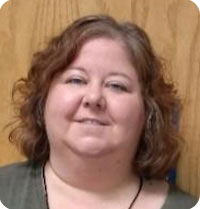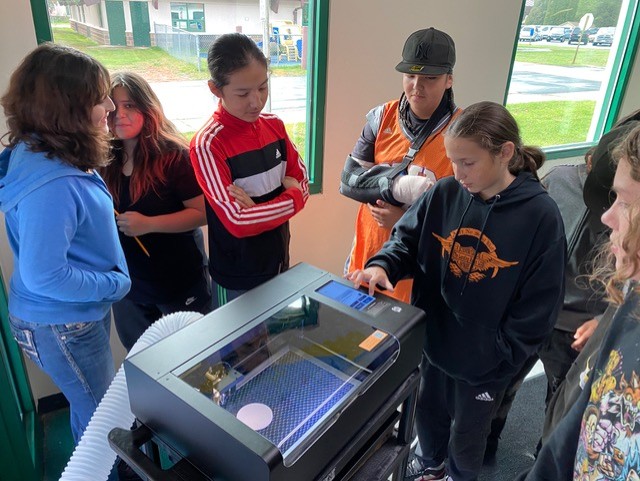Lac Courte Oreilles Ojibwe students embrace technology education
There’s no space for a dedicated room for a fabrication laboratory at the growing Lac Courte Oreilles Ojibwe School in Hayward, so science teacher Tammy Moncel improvised.
“The kids are so excited about technology,” says Moncel. “So, I put the 3D printers and the other equipment on mobile carts so that if other teachers want to use it, it can be shared. We’re just starting with this whole idea, but it’s been super fun.”
Her innovation, working with high school science teacher Wendy Fuller, has spread the love for technology throughout the middle and high schools.
The school, which has about 400 students in its K-12 programs, is the first tribal school to receive a Fab Labs Grant from WEDC to help provide the skills, expertise, and equipment needed to prepare students to compete in a tech-dependent job market.
Labs build confidence and connection
Fab labs, short for fabrication laboratories, are high-tech workshops equipped with computer-controlled manufacturing components. WEDC has provided more than $5 million to 125 state schools districts to establish or broaden their fab lab programs.

Tammy Moncel, science teacher
Moncel wrote the application for the $19,920 WEDC grant, which funded the purchase of four 3D printers, three Cricut machines, two laser engravers, two pocket lab sensor kits, and a decal machine. It was the first such grant awarded to a tribal school in Wisconsin. The new machines helped fuel a student-led, teacher-facilitated approach to learning at the school.
“I can’t be an expert on all of this stuff,” says Moncel. “But I can put it in the hands of kids, and they come up with ideas that are amazing. When the kids ask, ‘Do you think this will work?’ I tell them to give it a try. We learn from every trial.”
Students at the school have taken a strong interest in science. They enjoy a mentorship program with help from corporate sponsor mentors through the Try Engineering Together platform, have partnerships with nearby Lac Courte Oreilles University and the Civil Air Patrol, and even sent an experiment to the International Space Station. The school is part of the Project Lead the Way program and is supported in computer science by the American Indian Science and Engineering Society and is part of its Indigenous Coders program.
Moncel’s students also have access to 15 robots and a flight simulator. The fab lab has deepened an already strong science experience, she says: “Students have used the pocket sensors to determine the speed of miniature cars racing through the hallway and used 3D printers to design their own cups, fidgets, and even a dragon with all of the segmented parts.”
Solving problems, building careers
The lab also opens the door to creating partnerships with local manufacturing firms in need of employees with a skill base in computer-aided manufacturing technology.
“There’s a lot of manufacturing in our town, and we have LCO Conservation right down the road, and we do a lot of projects with them,” Moncel says.
Academically, the lab also strikes a spark that keeps students hungry to learn more. “It’s pushed them to a higher level of thinking,” she says. “They’re collaborating, trying to solve problems. It’s created an independence they wouldn’t have had otherwise. This gives students the freedom to do real science and try something different without the fear of doing it wrong.”


